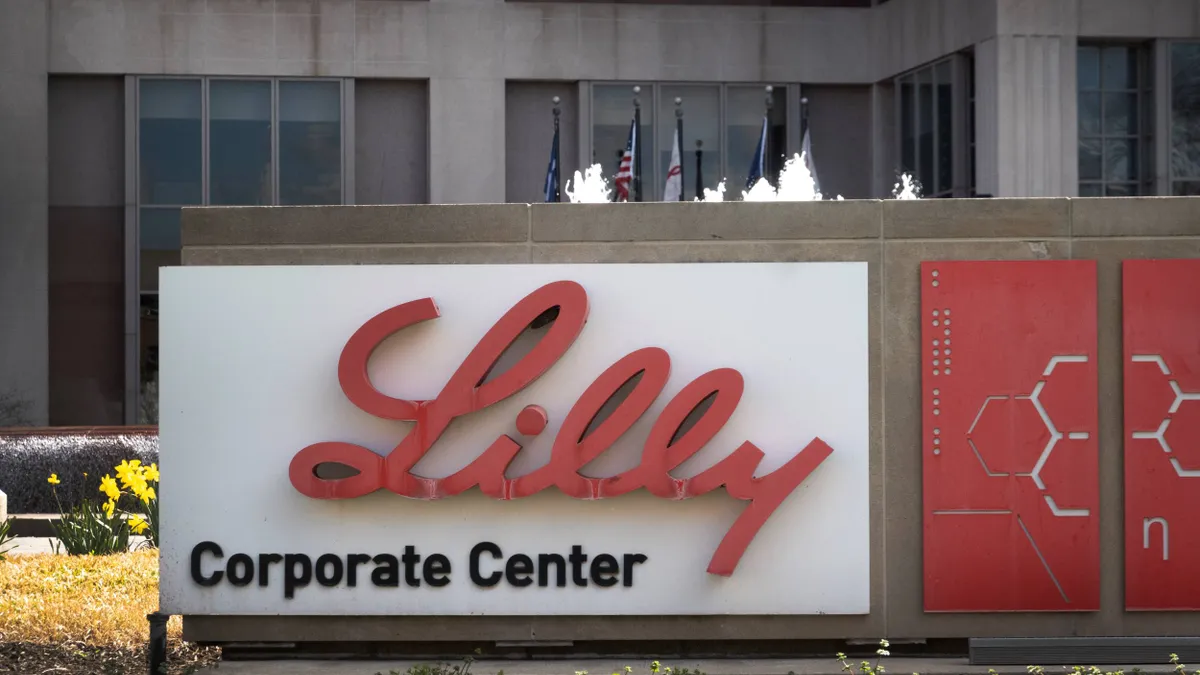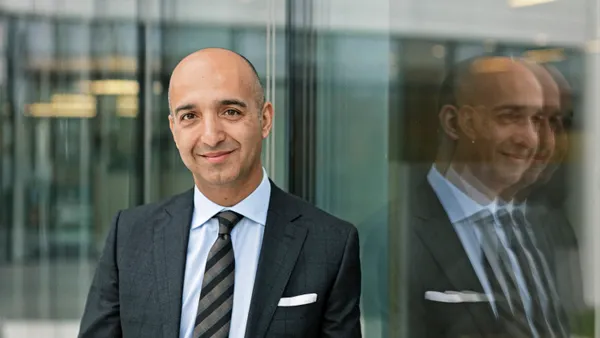Eli Lilly is searching for a new neuroscience chief after announcing Wednesday that the division’s current head, Anne White, will retire in December after a 30-year career at the Indianapolis pharmaceutical company.
White, who serves on Lilly’s executive committee, took over neuroscience leadership in 2021, when the company split its biomedicines unit in two to prepare for expected launches of immune system and Alzheimer’s disease drugs. Previously, White led Lilly’s oncology unit and helped oversee the successful acquisition and integration of Loxo Oncology, which became the foundation for the company’s current cancer drug efforts.
"Anne's career has been defined by a deep commitment to advancing medicines for some of the most challenging diseases affecting patients globally," Lilly CEO David Ricks said in a statement.
The company said it will consider internal and external candidates to replace White, who will retire on Dec. 31.
As head of Lilly Neuroscience, White oversaw the regulatory submission and launch of Kisunla, a drug designed to slow the progression of Alzheimer’s. For Lilly, the U.S. approval was the culmination of decades of research into drugs for the memory-robbing condition — work that, until Kisunla, had repeatedly come up short.
The achievement was personal for White, who has written about her mother’s experience with Alzheimer’s and how she hopes recent research advances will lead to improved treatment and care.
“The progress we are now realizing will lead to more investment and research in Alzheimer’s disease that will unlock further understanding and open the door to address other neurodegenerative conditions,” she wrote in a Fortune editorial published the day of Kisunla’s FDA clearance. “This moment will be a catalyst to drive progress toward understanding diseases such as ALS, Parkinson’s, and multiple sclerosis.”
Lilly recently won Food and Drug Administration clearance for modified dosing of Kisunla that’s aimed at reducing a potentially dangerous side effect. That effect, known as "ARIA," has been a significant overhang for Kisunla and other drugs that work similarly, like Eisai and Biogen’s Leqembi.
While analysts expect Kisunla will eventually become a blockbuster, it has performed modestly since launching last year. Lilly recorded $49 million in sales from the drug during the three-month period from April through June.
Lilly is developing another Alzheimer’s medicine, remternetug, that’s currently in Phase 3 testing. Also in its neuroscience pipeline are a handful of gene therapies for diseases like Parkinson’s, Gaucher and frontotemporal dementia, as well as four drugs for pain. Lilly recently added one of those latter therapies via its acquisition of the California-based startup SiteOne Therapeutics.
In its statement, Lilly credited White with efforts to speed drug development timelines across the company.















